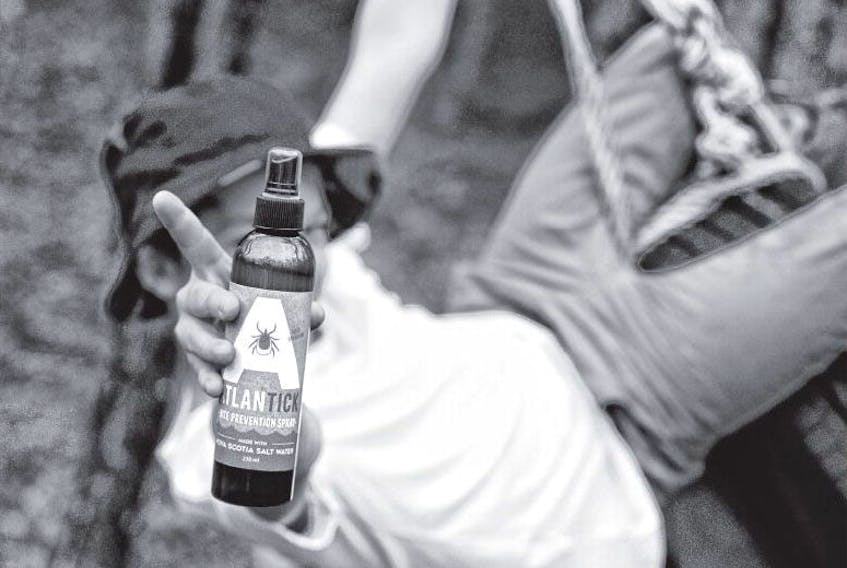Nicoletta Faraone has a bunch of ticks from Oklahoma.
But they don’t have a charming southern drawl.
In fact, there’s nothing charming about the black-legged ticks as she watches them come for her.
“They detect the carbon dioxide of the potential host (her) and so they are trying to get to it,” said the chemical ecology researcher at Acadia University.
But Faraone is alright — the ticks she buys from the University of Oklahoma are Lyme disease free — and anyway, she’s got them in a little prison.
She calls it an arena.
And lately she’s been testing a new product out of Mahone Bay.
AtlanTick is a mixture of lemon grass, witch hazel, jojoba oil and water created by Lisa Learning-Ali of Mahone Bay after her two sons were diagnosed with Lyme disease.
“They started showing symptoms like swollen knees and swollen ankles,” said Learning-Ali on Friday.
“After many visits to the doctor we learned that it was Lyme disease.”
It was 2016 and after some tests it was determined that the boys had contracted the disease separately — one nine months earlier and one a year earlier.
Mahone Bay, along with the rest of the Eastern Shore, South Shore and Pictou County, are classified as high-risk areas for Lyme disease due to the extensive infestation of the carrier black-legged tick.
Her sons were put on antibiotics, but Learning-Ali wanted them to still be able to play outdoors without fear of ticks.
“Though I don’t use it personally, I don’t have anything against DEET,” said Learning-Ali of the active compound in most insect repellents.
“I just thought we should have an alternative to DEET-based products.”
But though each of the compounds used in AtlanTick is legally sold in Canada, by combining them and advertising them as tick repellent, Learning-Ali was selling a pesticide.
And she wasn’t allowed to do that.
At least, not without registering her product with the Pest Management Regulatory Agency.
That’s where Faraone and her tick arena come in.
Learning-Ali contacted Acadia’s Office of Industry and Community Engagement and, with the help of two grants, was able to get research funding.
First of all, she had to prove to federal regulators that her product works as advertised.
“We observe about 75-80 per cent of repellency,” said Faraone. “That’s pretty good considering it’s a natural product.”
To test repellency, Faraone dropped five of her Oklahoma ticks into her arena and watched to see if they would cross a threshold treated with the product. She measured whether the black-legged ticks crossed the threshold at three-, five- and 10-minute intervals.
She also tested commercially available products that use DEET as an active ingredient and found that they have 100 per cent repellency after 10 minutes.
That study has led to another one — Learning-Ali and Acadia are teaming up again to study tick behaviour.
“I just love approaching something I know nothing about,” said Learning-Ali.
She estimates another two years remain in the “lengthy and expensive” process to get her product registered.
But that pales compared to the knowledge that her eldest son continues to live with the symptoms of Lyme disease because the antibio








